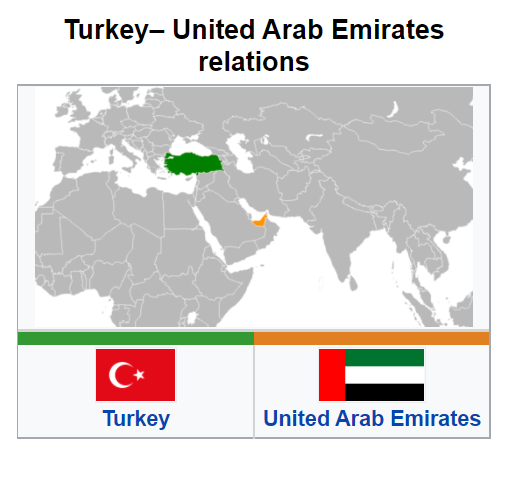Turkish President Recep Tayyip Erdogan traveled Monday to the United Arab Emirates, a trip signaling a further thaw in relations long strained over the two nations’ approaches to Islamists in the wake of the 2011 Arab Spring.
Erdogan arrived in Abu Dhabi, the Emirati capital, following a November visit to Turkey by the country’s de facto leader, Sheikh Mohammed bin Zayed Al Nahyan.
Sheikh Mohammed, also Abu Dhabi’s crown prince, greeted Erdogan and oversaw an honor-guard welcome for the Turkish president at the Al-Watan Palace.
Before taking off from Turkey, Erdogan said he hopes his visit advances the “big potential” of trade between the countries. The UAE is an important economic market for Turkey and home to many Turkish citizens. He also said Sheikh Mohammed’s earlier visit represented a “new phase” of relations between the nations.
For the two nations, the visit caps a monthslong rapprochement born out of the coronavirus pandemic and geopolitical necessity.
Relations strained largely over Turkey’s support for the Muslim Brotherhood in the region, which the UAE sees as a top national security threat that could upend its hereditary rule in the federation of seven sheikhdoms. Ankara suspects the UAE backed a network led by a U.S.-based Turkish Muslim cleric who Turkey accuses of orchestrating a failed coup targeting Erdogan in 2016.
The two nations also backed opposing sides in Libya, while Dubai became home to a Turkish gangster whose online videos last year outlined alleged corruption in Erdogan’s Justice and Development Party. He’s since stopped posting them.
Abu Dhabi has retooled a more-adversarial approach in dealing with regional rivals after largely withdrawing its forces from the war in Yemen. After ending its part in a four-nation boycott of Turkish-allied Qatar, the Emirates has sought to mend ties with Ankara amid attacks across the region sparked by the collapse of Iran’s nuclear deal with world powers.
Missed Opportunity: Turkey-Israel Relationship
The president’s visit will turn a “new positive page in bilateral relations between the two countries,” and is in line with the UAE’s aim to strengthen bridges of communication and cooperation in order to achieve stability and prosperity in the region, Anwar Gargash tweeted.
“The UAE continues to strengthen channels of communication with various countries in order to support the stability and prosperity of the region and the well-being of its people,” Gargash said.
Fed Interest Rate Hikes Will Hurt Turkish Economy (And Other Emerging Markets) Badly
In Turkey, the 67-year-old Erdogan faces an economic crisis and a depreciating lira currency, something economists have blamed on his interest rate cuts. Lower interest rates had spurred economic growth across Turkey. Erdogan also has grown more authoritarian in his nearly two-decade hold on power in Turkey, a country of some 84 million people.
The UAE, home also to Dubai, agreed in January to a currency swap deal equivalent to $4.74 billion to boost Turkey’s depleted foreign exchange reserves. During Sheikh Mohammed’s breakthrough visit to Turkey last fall, Emirati officials said the UAE would set aside $10 billion for investment in Turkey.
Turkey is also working to normalize relations with Saudi Arabia and Israel. Erdogan had in January announced a state visit to Riyadh in February, but the new disappeared from Turkish press. It is suggested that pre-summit negotiations are still in progress. Israeli president Yitzhak Herzog is expected to travel to Ankara in late February or March, when the talks will focus on a natural gas pipeline from Israeli off-shore fields via Cyprus to Turkey proper.
Turkish experts suggest that Biden’s intention to refocus from Middle East to Asia-Pacific is stoking a feverish search for new allies and political constellations in the region.
Follow our English language YouTube videos @ REAL TURKEY:
https://www.youtube.com/channel/UCKpFJB4GFiNkhmpVZQ_d9Rg
And content at Twitter: @AtillaEng
